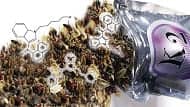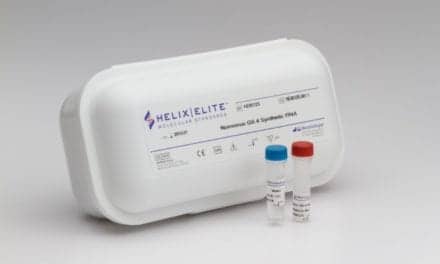SeraCare Life Sciences, Milford, Mass, and the US Department of Commerce’s National Institute of Standards and Technology (NIST) have signed a 3-year cooperative research and development agreement to advance the development of reference standards for circulating tumor DNA (ctDNA) diagnostic assays.
Detection of tumor-originating fragments of DNA—so-called liquid biopsy—is a promising method with the potential to diagnose, profile, and monitor cancer. Continued development of the method has created an acute need for standards to compare the detection limits of diagnostic assays.
SeraCare’s ctDNA reference materials are mixtures of size-appropriate fragments of DNA containing highly multiplexed numbers of somatic ‘driver’ mutations, produced at very specific allele frequencies in a defined, fragmented genomic DNA background from a single-individual. The materials are then stabilized and blended into a synthetic plasma-like matrix under proprietary technology developed at SeraCare. This material can be treated just like a patient sample run through the full extraction and analysis process, and can be used to determine analytical performance of a ctDNA molecular assay down to as low as 0.1% allele frequency (a single mutant molecule in 1,000 normal ones).
Under the terms of the agreement, SeraCare will provide its Seraseq ctDNA reference material technology to NIST for development of digital polymerase chain reaction measurement methodologies, and NIST will facilitate wider distribution of these materials to anonymized laboratories for interlaboratory comparisons. The joint efforts are meant to hasten the development of calibrated reference standards for circulating tumor DNA—critical for expanding the use of these technologies into translational research and diagnostic labs.
“SeraCare and NIST make a natural fit, given NIST’s measurement expertise and commitment to bridge the worlds of translational research and clinical diagnostics,” says Russell Garlick, PhD, chief scientific officer at SeraCare Life Sciences. “NIST can facilitate the rapid adoption of calibrated and highly functional molecular standards in the rapidly evolving field of circulating tumor DNA assay development.”
“The interlaboratory comparisons made possible by this partnership will speed NIST’s efforts to overcome measurement challenges and advance cancer-detection technology broadly for the biomedical community,” says Kenneth Cole, a group leader in NIST’s biosystems and biomaterials division. “Studies have shown that circulating tumor DNA can be detected in many cancers and it can be used to monitor therapeutic progress.”
For more information, visit SeraCare.







